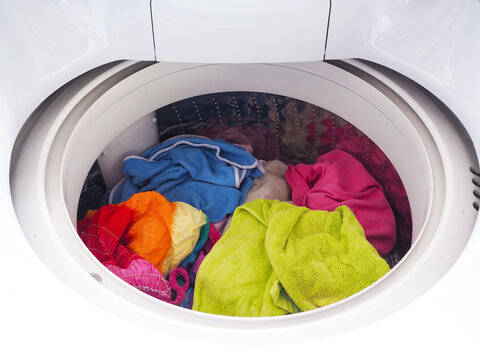Kitchen Fire Safety Tips and Precautions
Kitchen Fire Safety Tips:
Kitchen fires can be dangerous and can spread quickly if not handled properly. Here are some kitchen fire safety tips to help you prevent and respond to kitchen fires:
- Stay in the kitchen: Never leave the kitchen while cooking food on the stovetop. Most kitchen fires start because food is left unattended.
- Use a timer: Set a timer to remind you to check on your cooking regularly. This can help prevent food from burning and causing a fire.
- Keep flammable items away: Keep flammable items such as kitchen towels, paper towels, and pot holders away from the stove. Make sure they are not hanging over the burners.
- Keep the stovetop clean: Food debris and grease buildup can ignite. Clean your stovetop regularly to prevent this.
- Wear appropriate clothing: Avoid wearing loose-fitting clothing or anything with long, loose sleeves that could catch fire. Opt for short or tight-fitting sleeves.
- Use the right equipment: Use cookware with tight-fitting lids and handles that stay cool. This can help you control and extinguish a fire more easily.
- Keep a fire extinguisher: Have a fire extinguisher rated for kitchen fires (Class K) readily available and know how to use it. Make sure it's not expired.
- Learn to smother a fire: If a small fire starts in a pan, carefully slide a lid over the pan to smother the flames. Turn off the heat and leave the lid in place until the pan cools.
- Do not use water on grease fires: If a fire starts with hot oil or grease, never use water to try to extinguish it. Instead, use a fire extinguisher or a metal lid to smother the fire.
- Keep an oven mitt and lid nearby: In case a fire breaks out in your oven, have an oven mitt and a lid or cookie sheet nearby to cover and smother the flames.
- Teach household members fire safety: Make sure everyone in your household knows what to do in case of a kitchen fire. Have a plan, and practice it.
- Have a designated safe area: Designate a safe spot outside your home where everyone should go in case of a fire. This helps ensure everyone is accounted for and safe.
- Call 911: If a fire gets out of control, do not hesitate to call the fire department. Even if you think you've extinguished it, professionals should verify that the fire is completely out.
Remember that safety should always be the top priority. If you're unsure about how to handle a kitchen fire or if it's growing beyond your control, evacuate the premises and call for professional help immediately.
Preventing kitchen fires is crucial for the safety of your home and family. Here are some kitchen fire safety precautions to help reduce the risk of fires in your kitchen:
- Install and maintain smoke alarms: Make sure your kitchen is equipped with working smoke alarms. Test them regularly and replace the batteries as needed.
- Install a fire extinguisher: Place a fire extinguisher in an easily accessible location in the kitchen, and make sure it's rated for kitchen fires (Class K). Learn how to use it.
- Cooking equipment safety:
- Always use appliances and cooking equipment according to the manufacturer's instructions.
- Keep stovetops, ovens, and range hoods clean and free of grease buildup.
- Ensure that all appliances and cords are in good working condition.
- Safe cooking practices:
- Never leave food unattended on the stovetop or in the oven.
- Use a timer to remind you to check on your cooking.
- Avoid cooking while under the influence of alcohol or drugs that can impair your judgment.
- Keep flammable materials away:
- Store kitchen towels, dishcloths, and potholders away from the stovetop.
- Avoid draping or hanging any materials over the burners.
- Safe cooking attire:
- Avoid wearing loose-fitting clothing while cooking.
- Roll up or secure long sleeves to prevent them from catching fire.
- Keep children and pets at a safe distance: Keep a "kid-free zone" of at least 3 feet around the stove and areas where hot items are being prepared.
- Use microwave-safe containers: Only use microwave-safe containers and follow microwave cooking instructions to prevent fires caused by microwaves.
- Practice safe frying:
- When deep-frying, use a deep fryer or a heavy, deep pan with a thermometer.
- Keep a lid nearby to cover the pot in case of a grease fire.
- Never add water to hot oil.
- Regularly inspect and maintain appliances:
- Check for damaged or frayed cords, plugs, and switches.
- Replace or repair any faulty equipment promptly.
- Properly store flammable liquids: Keep flammable liquids like cooking oils, cleaning agents, and gasoline away from heat sources and in a cool, well-ventilated area.
- Ventilation: Ensure that your kitchen is adequately ventilated, either through a range hood or by opening windows and doors, especially when cooking with high heat.
- Teach household members fire safety: Educate your family members about kitchen fire safety and what to do in case of a fire. Practice fire drills.
- Have an escape plan: Develop a home fire escape plan with a designated meeting place outside the home, and make sure everyone knows it.
- Keep emergency numbers accessible: Post the emergency number for the fire department in a visible location, and ensure everyone knows how to dial it.
Remember that fire safety in the kitchen is not something to be taken lightly. By following these precautions and being vigilant in the kitchen, you can significantly reduce the risk of kitchen fires and keep your home and family safe.






